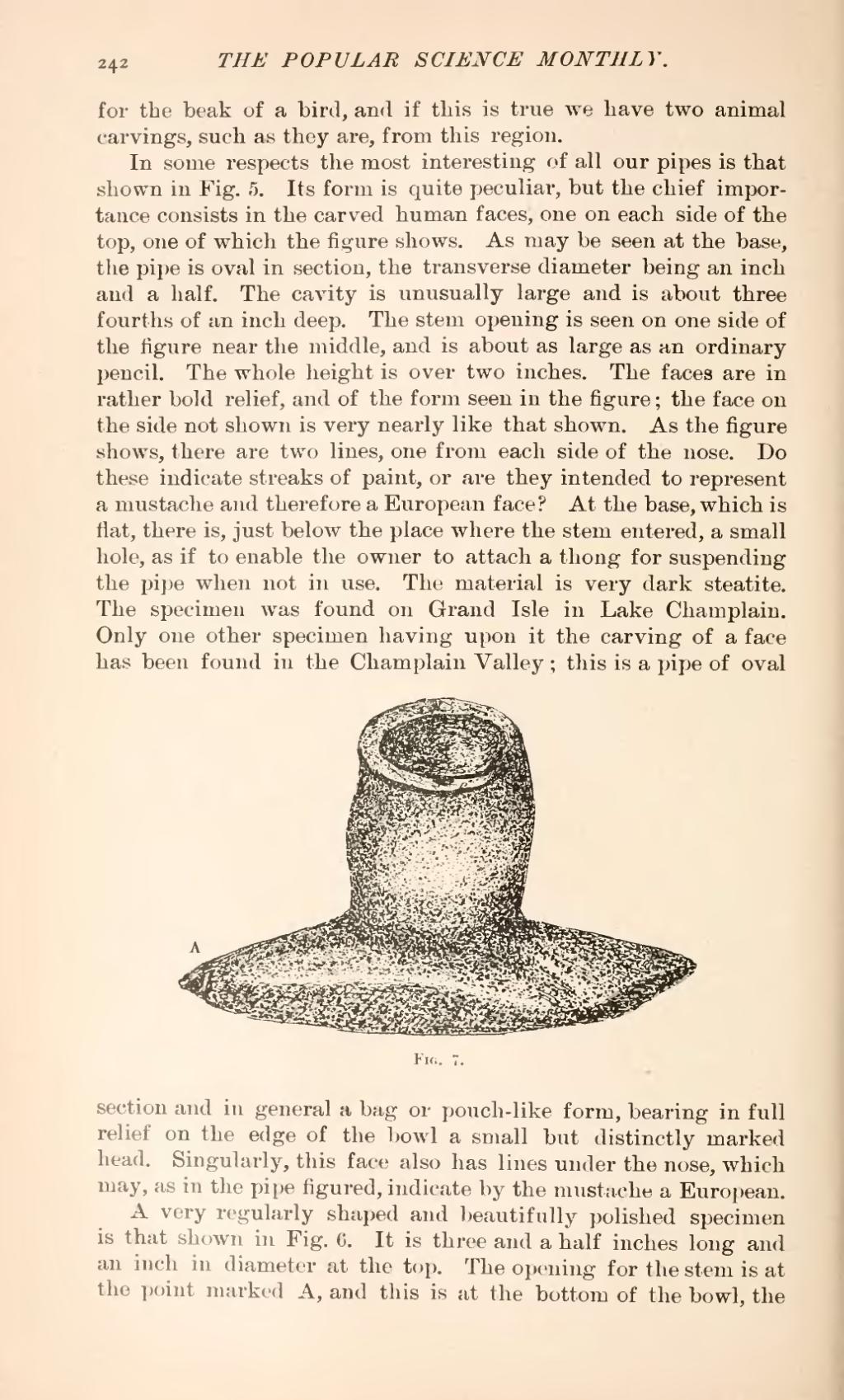for the beak of a bird, and if this is true we have two animal carvings, such as they are, from this region.
In some respects the most interesting of all our pipes is that shown in Fig. 5. Its form is quite peculiar, but the chief importance consists in the carved human faces, one on each side of the top, one of which the figure shows. As may be seen at the base, the pipe is oval in section, the transverse diameter being an inch and a half. The cavity is unusually large and is about three fourths of an inch deep. The stem opening is seen on one side of the figure near the middle, and is about as large as an ordinary pencil. The whole height is over two inches. The faces are in rather bold relief, and of the form seen in the figure; the face on the side not shown is very nearly like that shown. As the figure shows, there are two lines, one from each side of the nose. Do these indicate streaks of paint, or are they intended to represent a mustache and therefore a European face? At the base, which is flat, there is, just below the place where the stem entered, a small hole, as if to enable the owner to attach a thong for suspending the pipe when not in use. The material is very dark steatite. The specimen was found on Grand Isle in Lake Champlain. Only one other specimen having upon it the carving of a face has been found in the Champlain Valley; this is a pipe of oval

Fig. 7.
section and in general a bag or pouch-like form, bearing in full relief on the edge of the bowl a small but distinctly marked head. Singularly, this face also has lines under the nose, which may, as in the pipe figured, indicate by the mustache a European.
A very regularly shaped and beautifully polished specimen is that shown in Fig. 6. It is three and a half inches long and an inch in diameter at the top. The opening for the stem is at the point marked A, and this is at the bottom of the bowl, the
